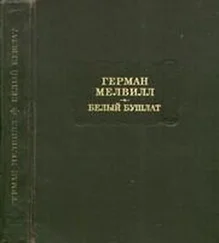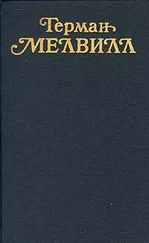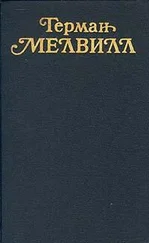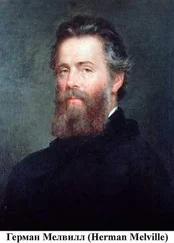"Come hither to me!"
"Thank you again, I think I will try my old stand—the hearth. And now, Mr. Lightning–rod–man, in the pauses of the thunder, be so good as to tell me your reasons for esteeming this one room of the house the safest, and your own one stand–point there the safest spot in it."
There was now a little cessation of the storm for a while. The Lightning–rod man seemed relieved, and replied:—
"Your house is a one–storied house, with an attic and a cellar; this room is between. Hence its comparative safety. Because lightning sometimes passes from the clouds to the earth, and sometimes from the earth to the clouds. Do you comprehend?—and I choose the middle of the room, because if the lightning should strike the house at all, it would come down the chimney or walls; so, obviously, the further you are from them, the better. Come hither to me, now."
"Presently. Something you just said, instead of alarming me, has strangely inspired confidence."
"What have I said?"
"You said that sometimes lightning flashes from the earth to the clouds."
"Aye, the returning–stroke, as it is called; when the earth, being overcharged with the fluid, flashes its surplus upward."
"The returning–stroke; that is, from earth to sky. Better and better. But come here on the hearth and dry yourself."
"I am better here, and better wet."
"How?"
"It is the safest thing you can do—Hark, again!—to get yourself thoroughly drenched in a thunder–storm. Wet clothes are better conductors than the body; and so, if the lightning strike, it might pass down the wet clothes without touching the body. The storm deepens again. Have you a rug in the house? Rugs are non–conductors. Get one, that I may stand on it here, and you, too. The skies blacken—it is dusk at noon. Hark!—the rug, the rug!"
I gave him one; while the hooded mountains seemed closing and tumbling into the cottage.
"And now, since our being dumb will not help us," said I, resuming my place, "let me hear your precautions in traveling during thunder–storms."
"Wait till this one is passed."
"Nay, proceed with the precautions. You stand in the safest possible place according to your own account. Go on."
"Briefly, then. I avoid pine–trees, high houses, lonely barns, upland pastures, running water, flocks of cattle and sheep, a crowd of men. If I travel on foot—as to–day—I do not walk fast; if in my buggy, I touch not its back or sides; if on horseback, I dismount and lead the horse. But of all things, I avoid tall men."
"Do I dream? Man avoid man? and in danger–time, too."
"Tall men in a thunder–storm I avoid. Are you so grossly ignorant as not to know, that the height of a six–footer is sufficient to discharge an electric cloud upon him? Are not lonely Kentuckians, ploughing, smit in the unfinished furrow? Nay, if the six–footer stand by running water, the cloud will sometimes select him as its conductor to that running water. Hark! Sure, yon black pinnacle is split. Yes, a man is a good conductor. The lightning goes through and through a man, but only peels a tree. But sir, you have kept me so long answering your questions, that I have not yet come to business. Will you order one of my rods? Look at this specimen one? See: it is of the best of copper. Copper's the best conductor. Your house is low; but being upon the mountains, that lowness does not one whit depress it. You mountaineers are most exposed. In mountainous countries the lightning–rod man should have most business. Look at the specimen, sir. One rod will answer for a house so small as this. Look over these recommendations. Only one rod, sir; cost, only twenty dollars. Hark! There go all the granite Taconics and Hoosics dashed together like pebbles. By the sound, that must have struck something. An elevation of five feet above the house, will protect twenty feet radius all about the rod. Only twenty dollars, sir—a dollar a foot. Hark!—Dreadful!—Will you order? Will you buy? Shall I put down your name? Think of being a heap of charred offal, like a haltered horse burnt in his stall; and all in one flash!"
"You pretended envoy extraordinary and minister plenipotentiary to and from Jupiter Tonans," laughed I; "you mere man who come here to put you and your pipestem between clay and sky, do you think that because you can strike a bit of green light from the Leyden jar, that you can thoroughly avert the supernal bolt? Your rod rusts, or breaks, and where are you? Who has empowered you, you Tetzel, to peddle round your indulgences from divine ordinations? The hairs of our heads are numbered, and the days of our lives. In thunder as in sunshine, I stand at ease in the hands of my God. False negotiator, away! See, the scroll of the storm is rolled back; the house is unharmed; and in the blue heavens I read in the rainbow, that the Deity will not, of purpose, make war on man's earth."
"Impious wretch!" foamed the stranger, blackening in the face as the rainbow beamed, "I will publish your infidel notions."
The scowl grew blacker on his face; the indigo–circles enlarged round his eyes as the storm–rings round the midnight moon. He sprang upon me; his tri–forked thing at my heart.
I seized it; I snapped it; I dashed it; I trod it; and dragging the dark lightning–king out of my door, flung his elbowed, copper sceptre after him.
But spite of my treatment, and spite of my dissuasive talk of him to my neighbors, the Lightning–rod man still dwells in the land; still travels in storm–time, and drives a brave trade with the fears of man.
The Encantadas; or, Enchanted Isles
Sketch First.
The Isles at Large.
—"That may not be, said then the ferryman,
Least we unweeting hap to be fordonne;
For those same islands seeming now and than,
Are not firme land, nor any certein wonne,
But stragling plots which to and fro do ronne
In the wide waters; therefore are they hight
The Wandering Islands; therefore do them shonne;
For they have oft drawne many a wandring wight
Into most deadly daunger and distressed plight;
For whosoever once hath fastened
His foot thereon may never it secure
But wandreth evermore uncertein and unsure."
* * * * *
"Darke, dolefull, dreary, like a greedy grave,
That still for carrion carcasses doth crave;
On top whereof ay dwelt the ghastly owl,
Shrieking his balefull note, which ever drave
Far from that haunt all other cheerful fowl,
And all about it wandring ghosts did wayle and howl."
Take five–and–twenty heaps of cinders dumped here and there in an outside city lot; imagine some of them magnified into mountains, and the vacant lot the sea; and you will have a fit idea of the general aspect of the Encantadas, or Enchanted Isles. A group rather of extinct volcanoes than of isles; looking much as the world at large might, after a penal conflagration.
It is to be doubted whether any spot of earth can, in desolateness, furnish a parallel to this group. Abandoned cemeteries of long ago, old cities by piecemeal tumbling to their ruin, these are melancholy enough; but, like all else which has but once been associated with humanity, they still awaken in us some thoughts of sympathy, however sad. Hence, even the Dead Sea, along with whatever other emotions it may at times inspire, does not fail to touch in the pilgrim some of his less unpleasurable feelings.
And as for solitariness; the great forests of the north, the expanses of unnavigated waters, the Greenland ice–fields, are the profoundest of solitudes to a human observer; still the magic of their changeable tides and seasons mitigates their terror; because, though unvisited by men, those forests are visited by the May; the remotest seas reflect familiar stars even as Lake Erie does; and in the clear air of a fine Polar day, the irradiated, azure ice shows beautifully as malachite.
Читать дальше








